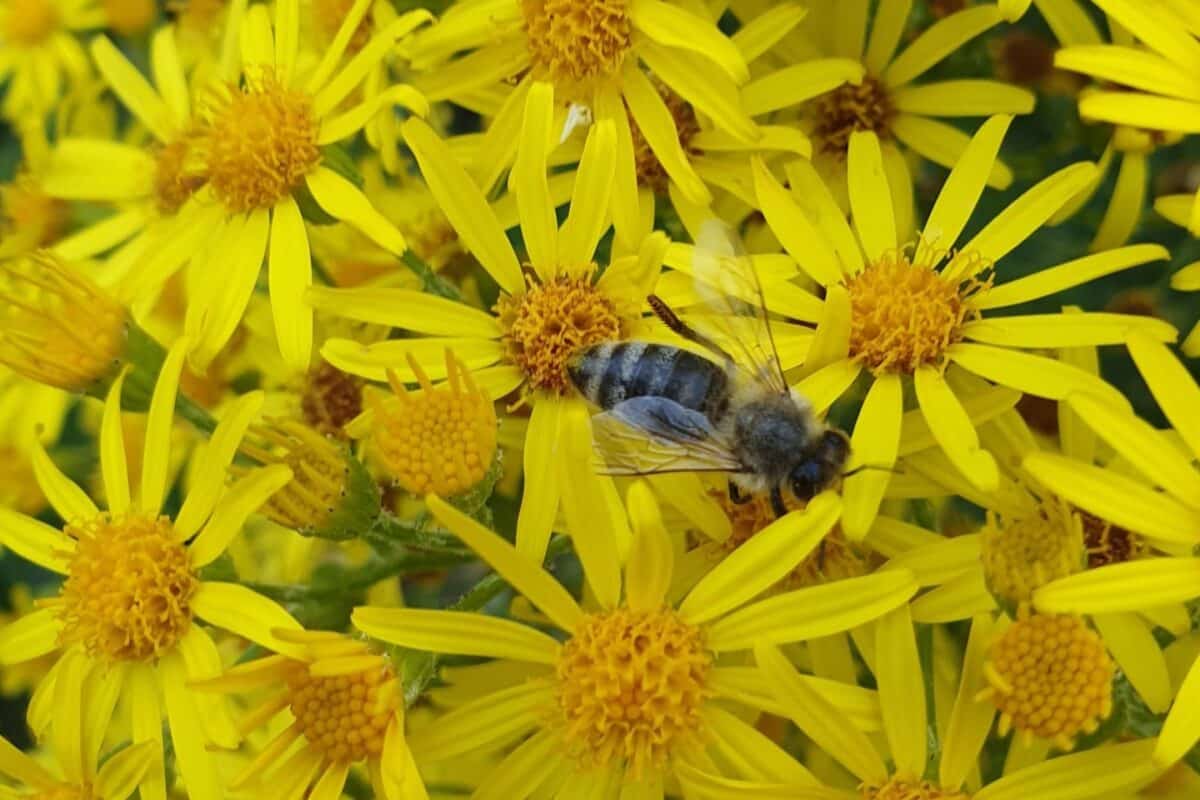Enid Barron, a member of the diocesan Creation Care Advisory Group, shares the experience of letting her garden grow wild. For information on encouraging biodiversity in your churchyard (or back garden) please visit the Church of England website.
It was not a difficult decision to sign up to ‘no mow May’.

Then someone who knew about these things saw the leaves, identified it as ragwort, said it was a beast of a plant, deadly poisonous to horses and should be destroyed immediately.

Every time I saw them like a great splash of sunshine through my kitchen window they brought me almost heart-stopping joy. Then I began to observe the flowers when I was outside, attracted by the buzzing of bees and other insects feeding on the ragwort and seeing some lovely butterflies settling on it. To my surprise the plant also had a beautiful scent.
One renegade ‘weed’ has turned out to be a thing of great beauty and worth, gladdening my heart at a stressful time this summer and contributing to environmental well-being by sustaining a host of pollinators and attracting butterflies. And I began to think how one foot of ground left to itself can produce surprising benefits. How would it be if we replicated this across the country?
Enid Barron is a member of St Stephen’s Ealing, a former member of Diocesan and General Synod, and a current member of our own Creation Care Advisory Group.
